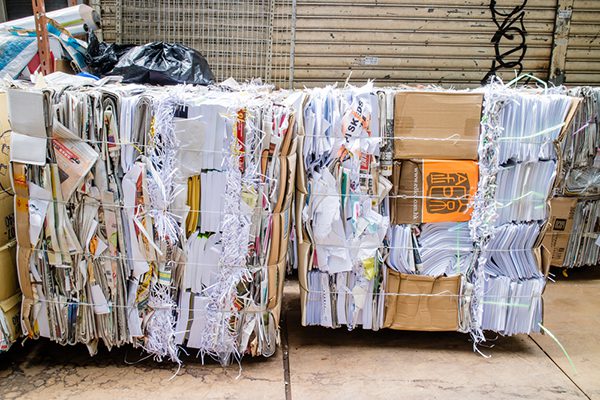How Commercial Waste Is Recycled
As businesses produce a significant amount of waste, it is important to consider the recycling options available for commercial waste. Recycling commercial waste not only helps to conserve resources and reduce pollution, but it can also be cost-effective for businesses.
In this blog, we will discuss the different recycling processes used for different types of commercial waste, and explain how businesses can ensure that their waste is being recycled responsibly.
Types of Commercial Waste
Commercial waste can include a wide range of materials, from paper and cardboard to plastics and food waste. It is important for businesses to understand the different types of waste they produce, in order to properly manage and recycle it. Some common types of commercial waste include:
- Paper and cardboard
- Plastics
- Glass
- Food waste
- Electronic waste
- Hazardous waste
Waste Disposal and Recycling
When it comes to disposing of commercial waste, businesses have a number of options. The most common options include:
- Using a waste management company: Many businesses choose to hire a professional waste management company to handle their waste disposal and recycling needs. These companies will typically provide regular commercial waste recycling collections and can also advise businesses on how to reduce their waste and recycle more effectively.
- Using a waste transfer note: A waste transfer note is a document that is required by law when waste is transferred from one person to another. It is used to track the movement of waste and ensure that it is being disposed of or recycled responsibly. Businesses that produce a significant amount of waste may be required to keep a waste transfer note for each load of waste they produce.
- Using recycling services: Some businesses may choose to use recycling services, such as a recycling bin or recycling collection, to handle their commercial waste.
Food Waste
Food waste is one of the most common types of commercial waste produced. It can be composted or donated to food banks. Composting food waste can turn it into a valuable soil amendment. Businesses can also take steps to reduce their food waste by implementing a food waste reduction program.
Electronic Waste
Electronic waste, or e-waste, is another common type of commercial waste. E-waste includes items such as computers, smartphones, and televisions. These items contain a variety of toxic chemicals and can be harmful to the environment if not disposed of properly. Businesses can recycle their e-waste through a certified e-waste recycling program.
Hazardous Waste
Hazardous waste is any waste that has the potential to cause harm to human health or the environment. This can include materials such as chemicals, batteries, and medical waste. Businesses that produce hazardous waste are required to handle it properly and safely. Hazardous waste should be taken to a licensed hazardous waste facility for proper disposal.
The Duty of Care
Businesses have a legal duty of care to manage and dispose of their waste responsibly. The law requires them to take all reasonable steps to minimise the amount of waste they produce and to ensure that any waste they produce is disposed of or recycled safely. Businesses should also be aware of the Environmental Protection Act 1990, which sets out the duty of care that businesses have in relation to the waste they produce.
Cost-Effective Solutions
Recycling commercial waste can be cost-effective for businesses. By reducing the amount of waste they produce and recycling more, businesses can save money on waste disposal costs. Additionally, recycling can create jobs and support local economies.
In conclusion, commercial waste can be recycled in a variety of ways. It is important for businesses to understand the different types of waste they produce, and to take steps to reduce, manage and recycle it responsibly. By understanding their duty of care, businesses can ensure
At Bailey’s Skip Hire & Recycling, we provide commercial waste services for businesses across Northamptonshire at surrounding. We will help you keep waste to a minimum by providing waste collections and recycling all materials possible. Our licensed waste carrier will collect the materials at a time that suits you at competitive prices.




